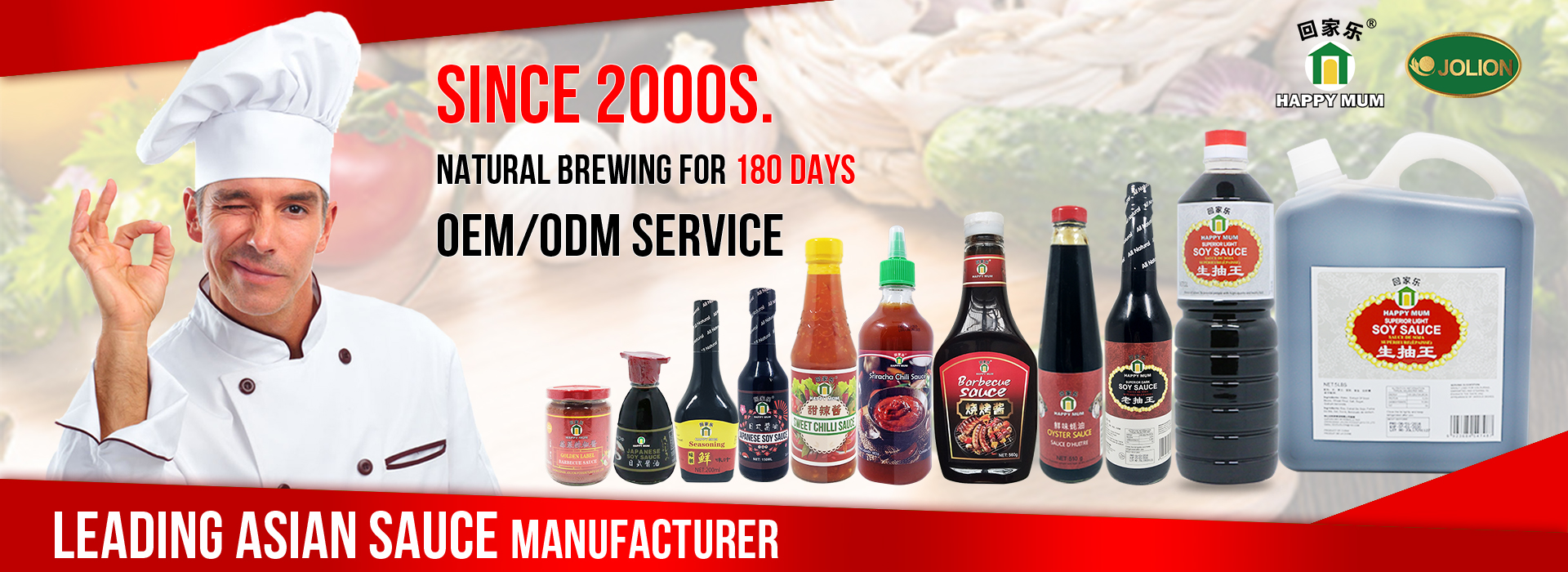
- Exploring JOLION Food's Exquisite Sauces and Noodles at SIAL PARIS 20242024-10-30SIAL PARIS, the renowned international food exhibition, is set to showcase a plethora of gastronomic wonders in 2024. Among the myriad of exhibitors, JOLION Food stands out as a beacon of culinary excellence, promising a delectable journey for food enthusiasts and industry professionals alike.
- The Mystery of Chilli Sauce2025-04-09
- Revealing The True Nature Of MSG2025-04-07
A Step-by-Step Guide on How Peanut Butter is Produced

Main Ingredients of Peanut Butter
Before delving into how peanut butter is produced, let's explore the key ingredients of peanut butter:
1. Peanuts
Peanuts are the primary ingredient of peanut butter. They are roasted and ground to add flavor and texture.

2. Peanut Oil
Peanut oil is added to achieve the desired consistency. It contributes to the smooth texture of peanut butter.
3. Salt
Salt elevates the overall flavor of peanut butter. It balances the sweetness of peanut butter with a savory taste.
4. Sugar
Sugar is added to provide sweetness to the peanut butter. How much sugar will be added to peanut butter can vary between brands and types of peanut butter.
5. Additional Additives
Some brands may add stabilizers, emulsifiers, or natural flavorings in peanut butter to enhance shelf life and taste.
How Is Peanut Butter Produced?
How is peanut butter produced? It mainly involves a five-step process:
1.Purchasing Materials
Buy high-quality peanuts and other ingredients. Peanuts are typically harvested in September. If you want to purchase fresh peanuts, don’t miss September.
2.Roasting Process
The shelled peanuts undergo dry roasting, typically in a hot air roaster. This process gives the peanuts a richer and deeper flavor and achieves a light brown color.
3.Grinding Techniques
After blanching to remove the outer skin, grind the peanuts into a smooth paste using industrial-scale grinding machines.
4.Blending Methods
Blend peanuts with other ingredients, such as peanut oil, salt, and sugar. By blending, a uniform flavor and texture of peanut butter can be achieved. This step may also add any additional additives or flavorings.
5. Packaging
The final step of how peanut butter is produced is packaging. The product is filled into containers and sealed for freshness. Packaging may include labeling and quality control inspections to comply with safety and quality standards.
Why Should You Choose Private Label Peanut Butter
1.Customization Options
Private-label peanut butter enables businesses to customize various products, such as flavors, packaging colors, and logo design. This can help create a unique product tailored to customer preferences and make your brand stand out.

2.Quality Control Advantages
When working with a private-label sauce supplier, quality control is often emphasized. These peanut butter manufacturers always invest in advanced manufacturing machines to ensure product quality. Additionally, they possess a deeper understanding of the product quality criteria.
3.Rise in Consumer Trust
Private-label products, if featuring quality and consistency, can build consumer trust. For example, if consumers recognize a private-label peanut butter brand for consistently delivering high-quality products, they may develop loyalty to that brand.
4.Flexibility in Marketing and Branding
Private-label sauces allow businesses to create their marketing strategies and branding. This can be especially valuable for supermarkets, factories, and restaurants looking to differentiate themselves. They can position the product according to their target audience and overall business branding, leveraging insights into how peanut butter is produced to communicate quality and uniqueness.
Elevate Your Sauce Brand with JOLION Foods
As we conclude the peanut butter production process, we hope you have a deeper understanding of peanut butter. If you are looking for an OEM saucer supplier, don't miss JOLION Foods. We are a trusted sauce supplier with over 20 years of experience in the sauce production industry. From peanut butter to sauces like soy sauce and oyster sauce, we bring premium quality to our clients. Contact us for your private label needs and take your brand to new heights.
Related News
- 2025-04-09The Mystery of Chilli Sauce
- 2025-04-07Revealing The True Nature Of MSG
- 2025-04-13The Relationship Between Vinegar and Ammonia: Insights from JOLION Foods
- 2025-04-12Why Quality Matters: The Superior Ingredients of JOLION Foods Soy Sauce
- 2025-04-11The Benefits of Low Salt Soy Sauce with JOLION Foods
- 2025-04-10Is Wasabi Toxic to Dogs? Understanding the Risks of This Spicy Condiment
Start Your Seasoning Sauce Business by a Free Quote
GET FREE QUOTES
If you are interested in our services, let's have a try on the first project
